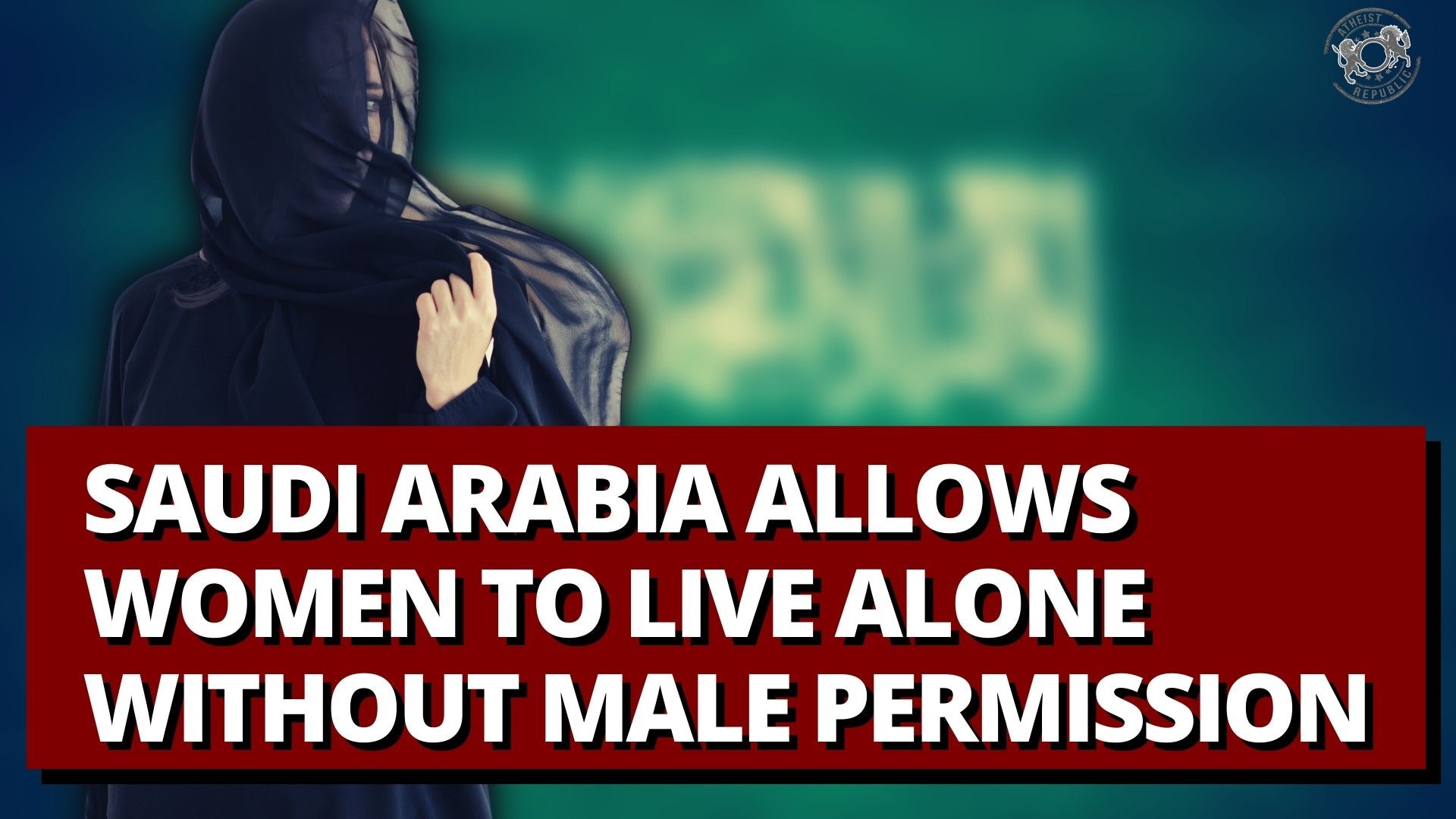
In a landmark decision earlier this month, Saudi Arabia amended their "Law of Procedure before Sharia Courts'' to allow women to live independently without permission from their male "guardian(s)".
Paragraph B under article no. 169 of the law stated that an adult single, divorced, or widowed woman shall be handed over to her male guardian. The jurisdiction discarded the old statement and replaced it with a new text that reads, "An adult woman has the right to choose where to live. A woman's guardian can report her only if he has evidence proving she committed a crime." It also states that "If a woman is sentenced to a jail term, she will not be handed over to her guardian after completing her term."
Saudi Arabia amends law to allow single women to live alone without needing male permission after landmark ruling in writer Mariam al Otaibi's casehttps://t.co/SEYZIh2w1P
— TRT World (@trtworld) June 11, 2021
This amendment materializes the historic July 2020 ruling for the Saudi writer Mariam Al Otaibi after her 3 years' legal battle against her family, who sued her for living and traveling alone. She was arrested in April 2017 for fleeing her family home in Ar Rass to escape abuse by her father and brothers. The judge said in his ruling that she did not commit any crimes and that she had "the right to choose where to live." Her lawyer Abdul Rahman Al Lahem, a renowned human rights lawyer in Saudi Arabia, thanked her for fighting for her rights relentlessly since 2017 for this ruling to come along.
Saudi Arabia is infamous for its terrible state of women's rights. Under the Kingdom's male guardianship system, women are considered legal minors to be supervised by their male guardians who are given complete legal authority over them. The said "male guardians" quite often being their father, brother, or her own son in some cases. According to the Saudi activists, the guardianship system turns women into "second-class citizens", depriving them of social and economic freedoms and making them more vulnerable to violence. According to the 2021 World Economic Forum's global gender gap report, the Saudi Kingdom ranks 147th out of 156 countries.
Saudi women and human rights activists have been fighting for women's rights for decades. Despite fatal consequences, Saudi women have been raising their voices against abuse on the internet throughout the 2000s to attract global attention. In 2019, the spread of the online campaign to save Rahaf Mohammed, who fled her abusive family and sought asylum on Twitter, caught substantial global attention. Later in April 2020, Saudi women made an uproar by sharing their sexual abuse stories under the guardianship system on social media under pseudonyms.
After the 2019 Rahaf Mohammed incident, the Saudi media reported in February for the first time that the Kingdom has decided to study how its "male guardianship system" is being abused. According to the Saudi Gazette, Saud al-Mojeb — a public prosecutor in the kingdom — said that his office would "spare no efforts in protecting individuals, whether women, children or parents, from unfair treatment by those who abuse guardianship powers."
Amendments like these are slowly being brought upon by the Crown Prince, Mohammed Bin Salman. He had earlier indicated that he favored ending the guardianship system. Through his "Vision 2030" initiative, he had been aiming to steer the Kingdom towards a more "moderate form of Islam" and introduce laws to help women advance in various fields.
Since 2017, after the introduction of the "Vision 2030" initiative, several amendments to the regressive Sharia Law have been brought upon, slowly. Much of which include more freedom to travel without male permission, to change their name, to legally change their relationship status, to own their own property, to join the military, etc.
However, human rights activists have pointed out that despite several reforms, women's rights activists are still being silenced. There's still a long way to go for Saudi Arabia to come any close to having proper women's rights, and that the progress made should not be overstated.
While Saudi women and people globally welcome the latest reform of women's right to live independently, men both there and abroad in other Islamic countries are making furious comments on social media. A Pakistani man replied to the news on Facebook by saying, "if Saddam Hussain was alive [nothing would be] happening like this!" Another man wrote that the "kingdom is on the wrong direction."
